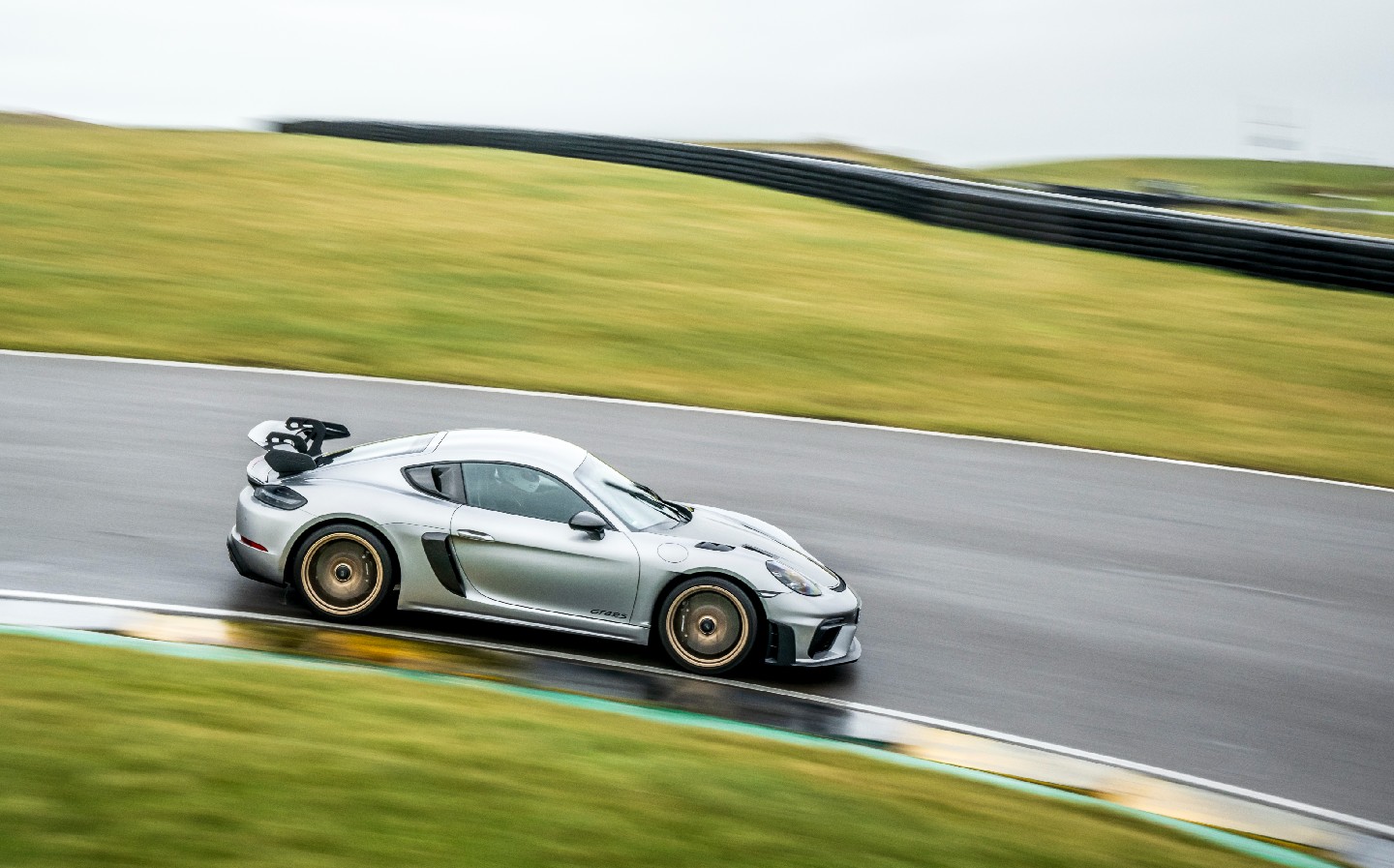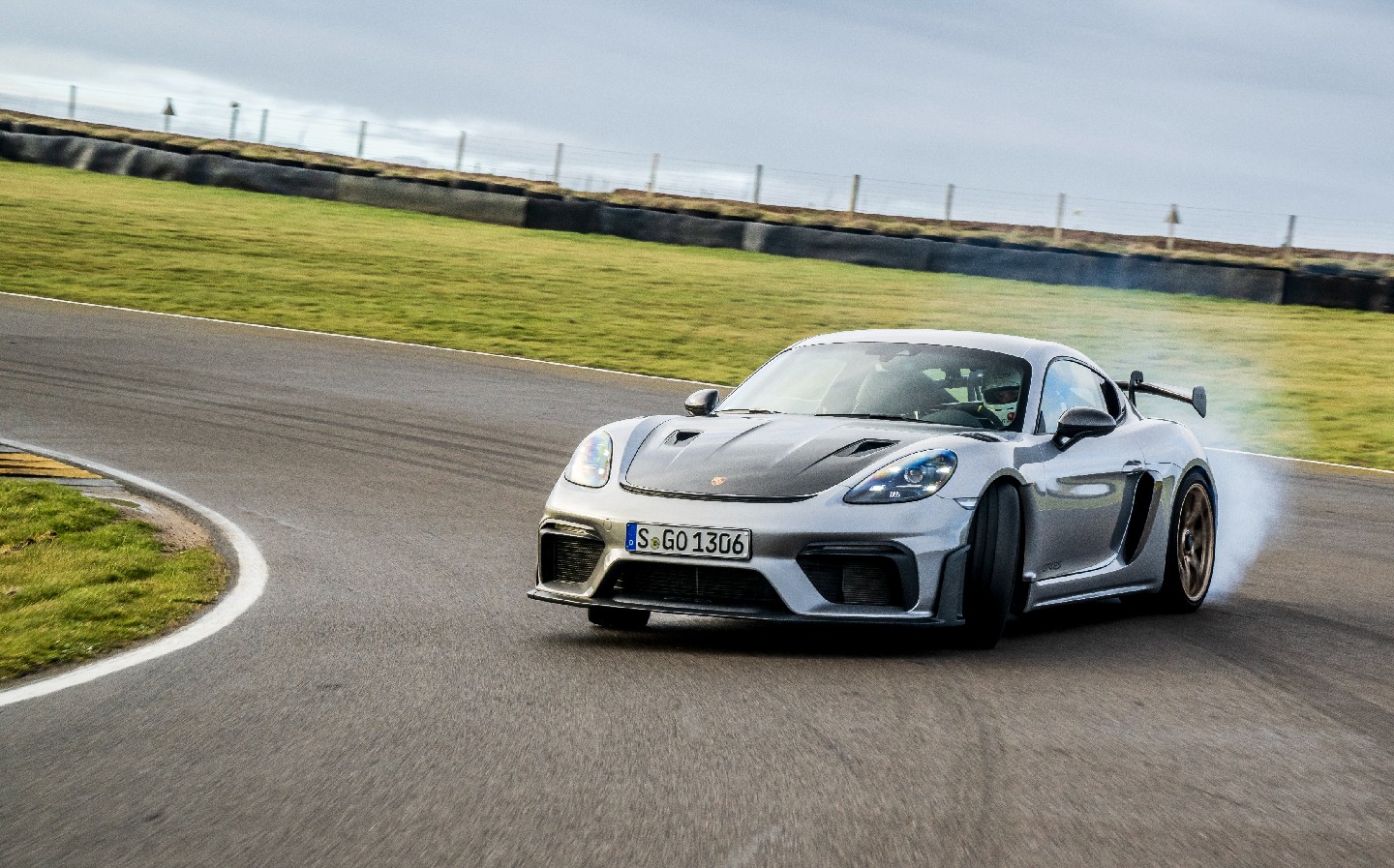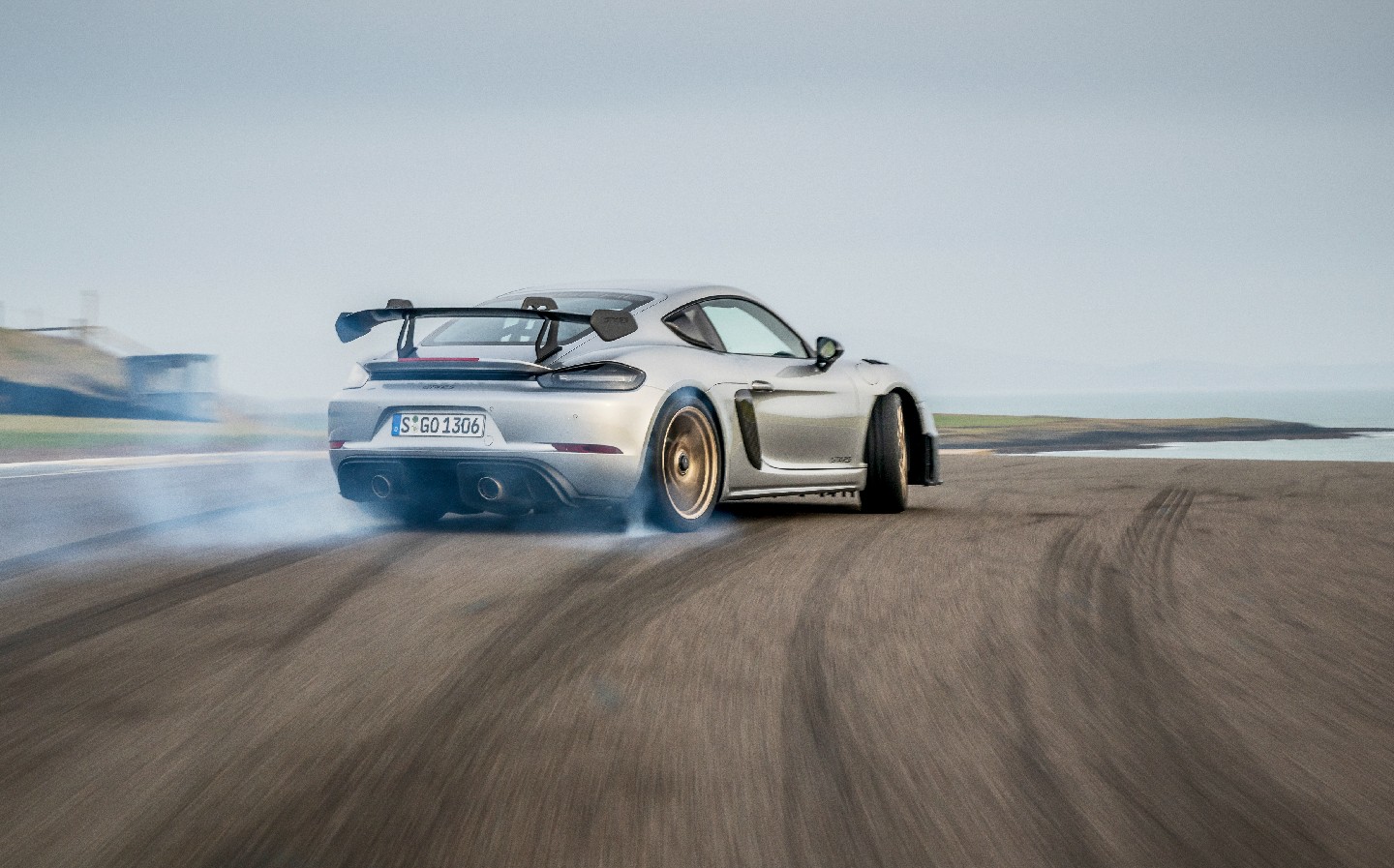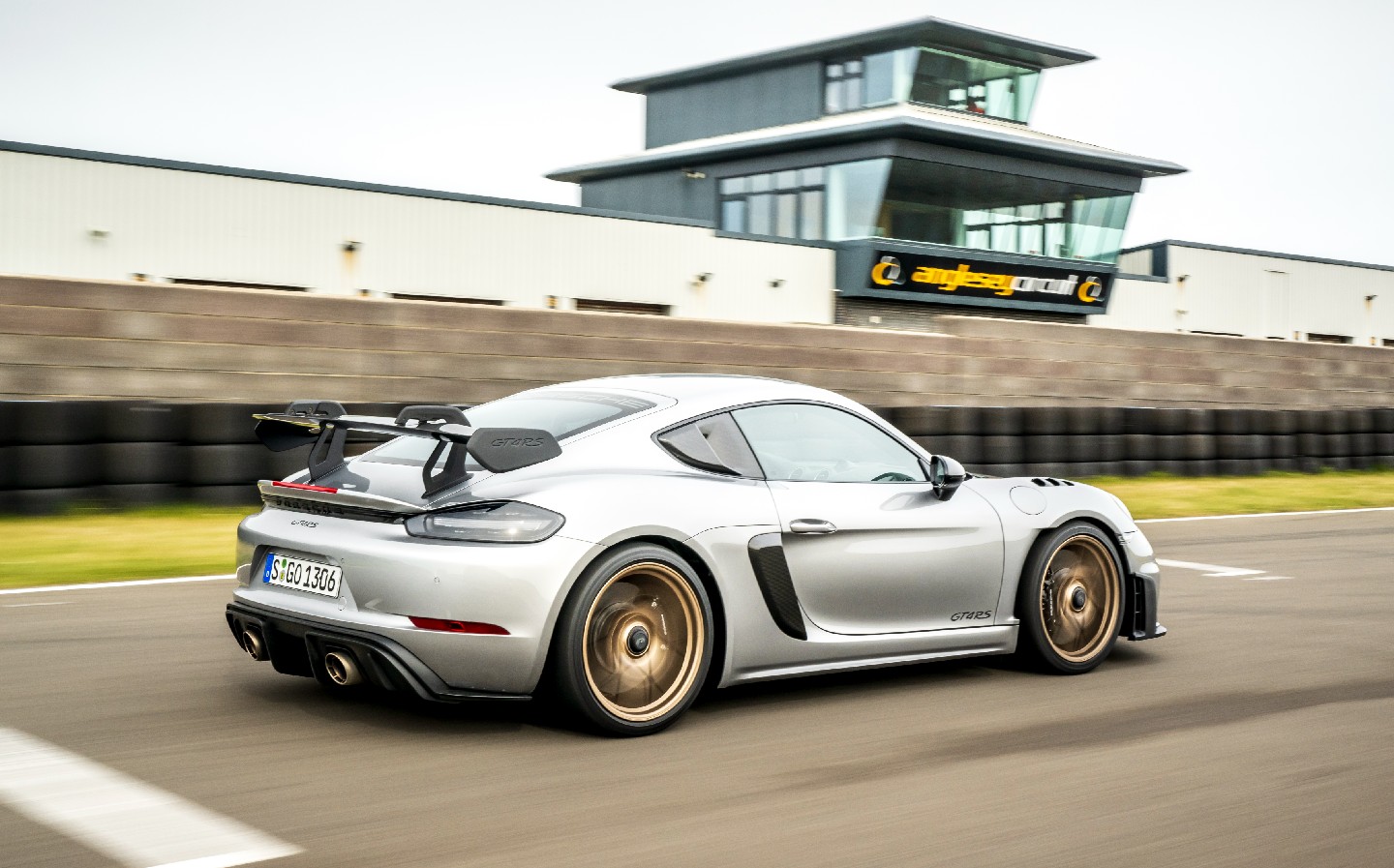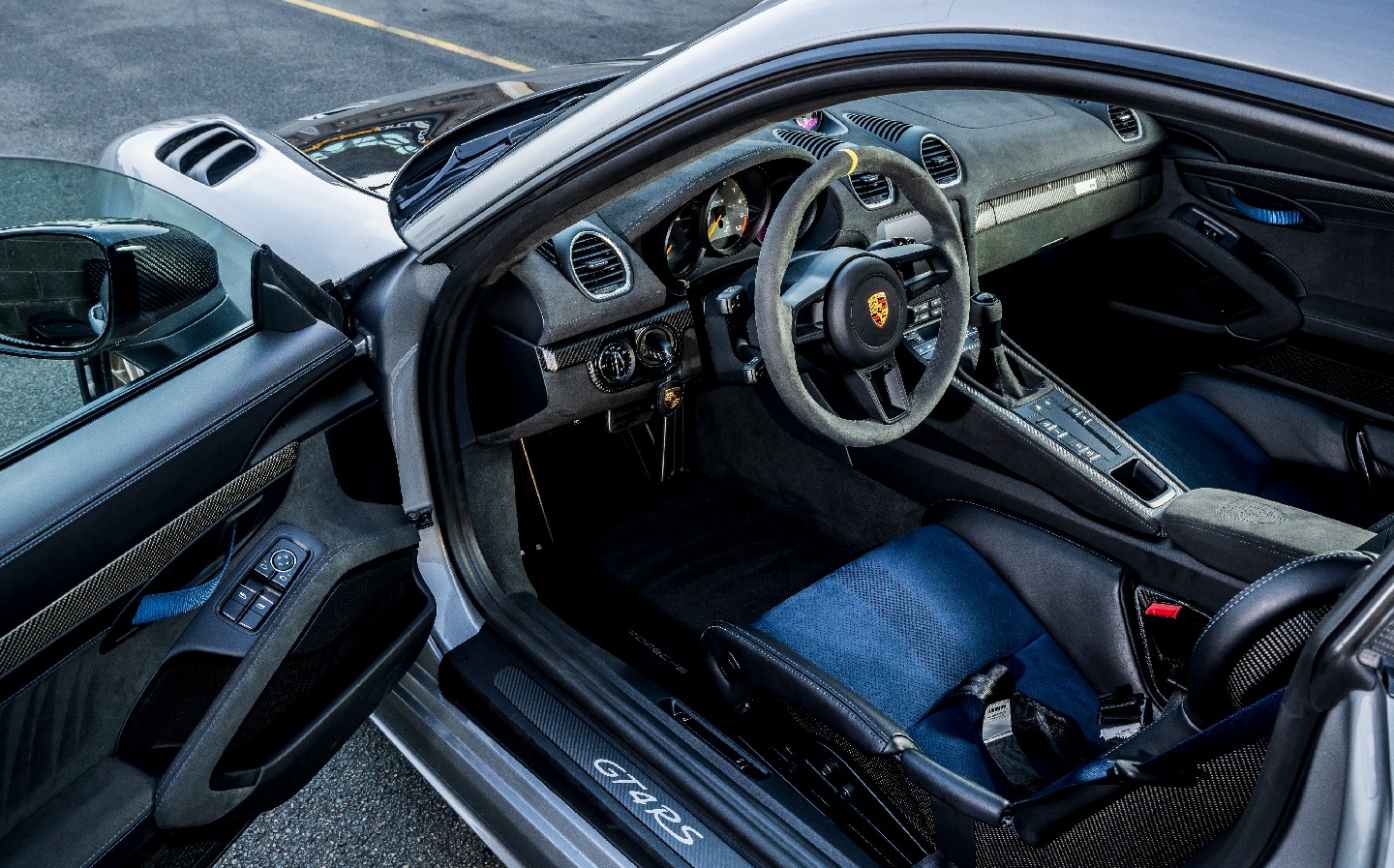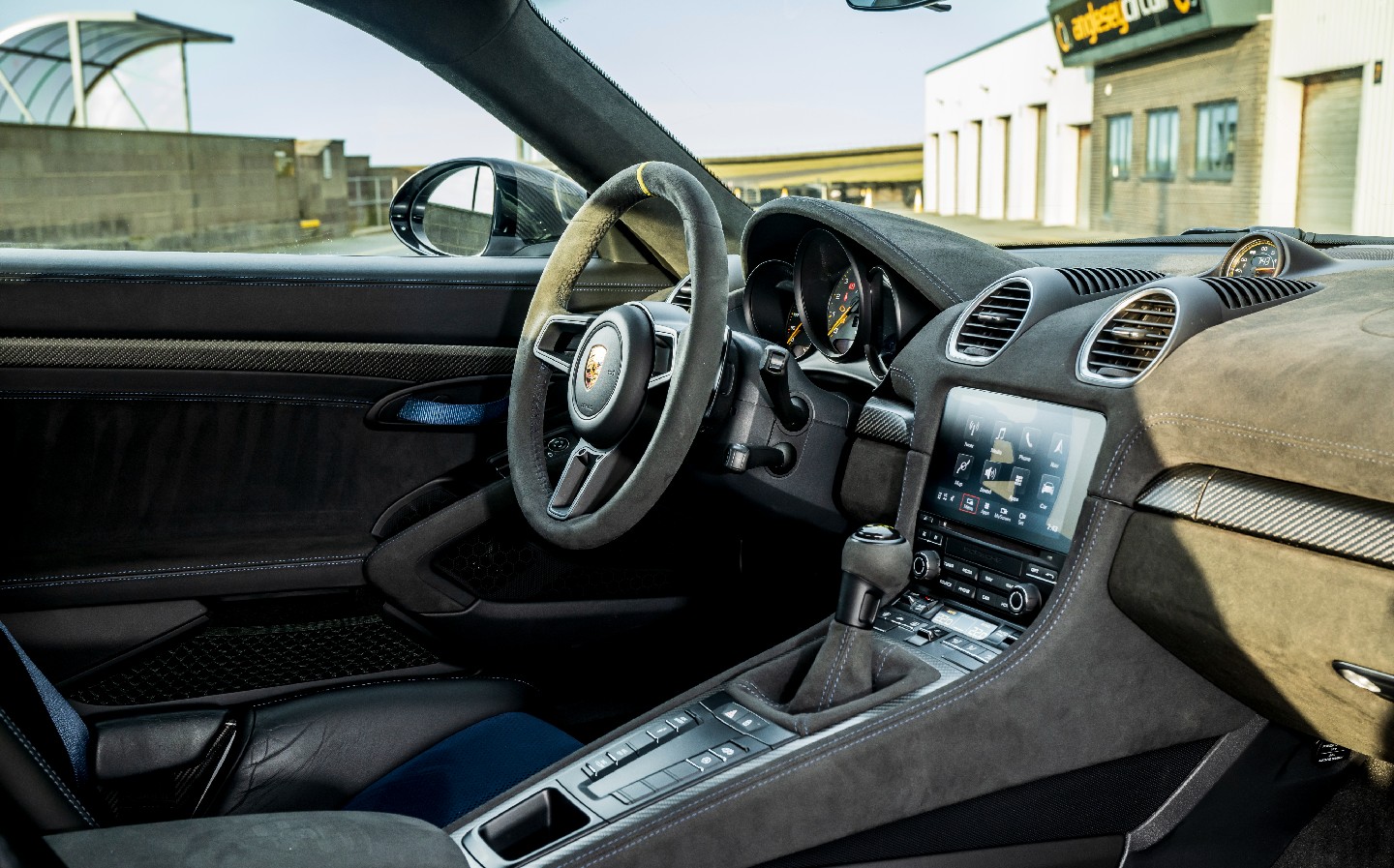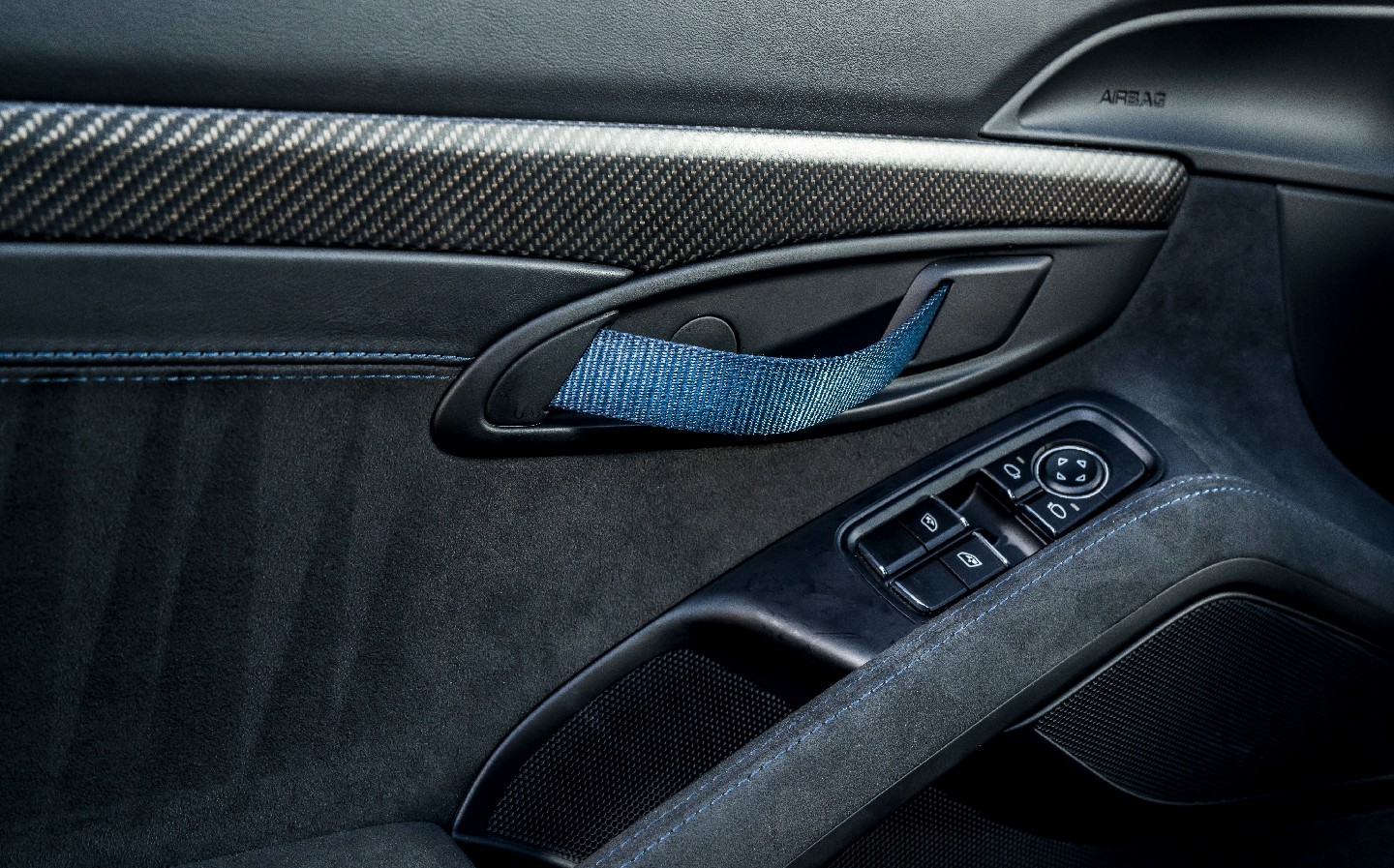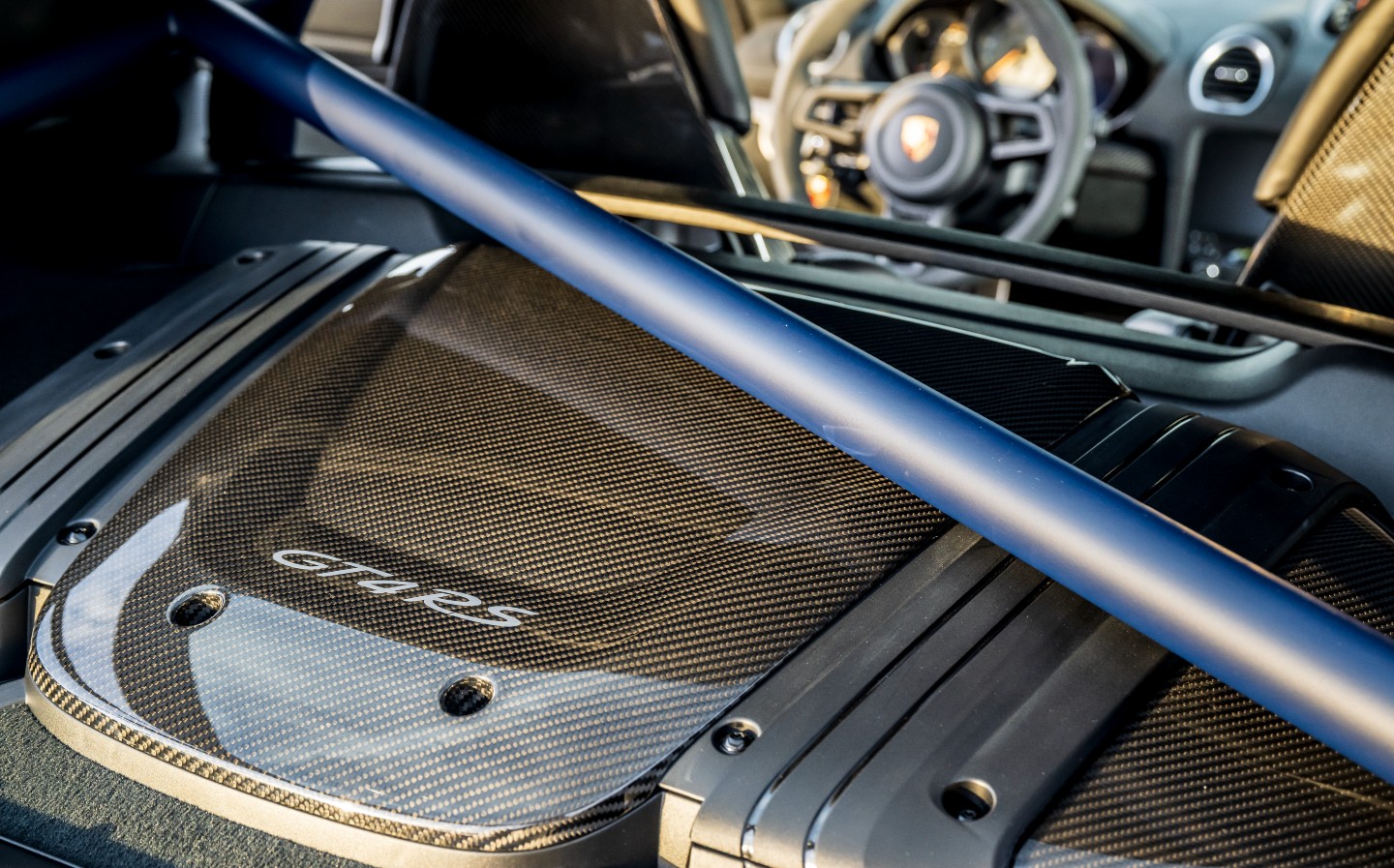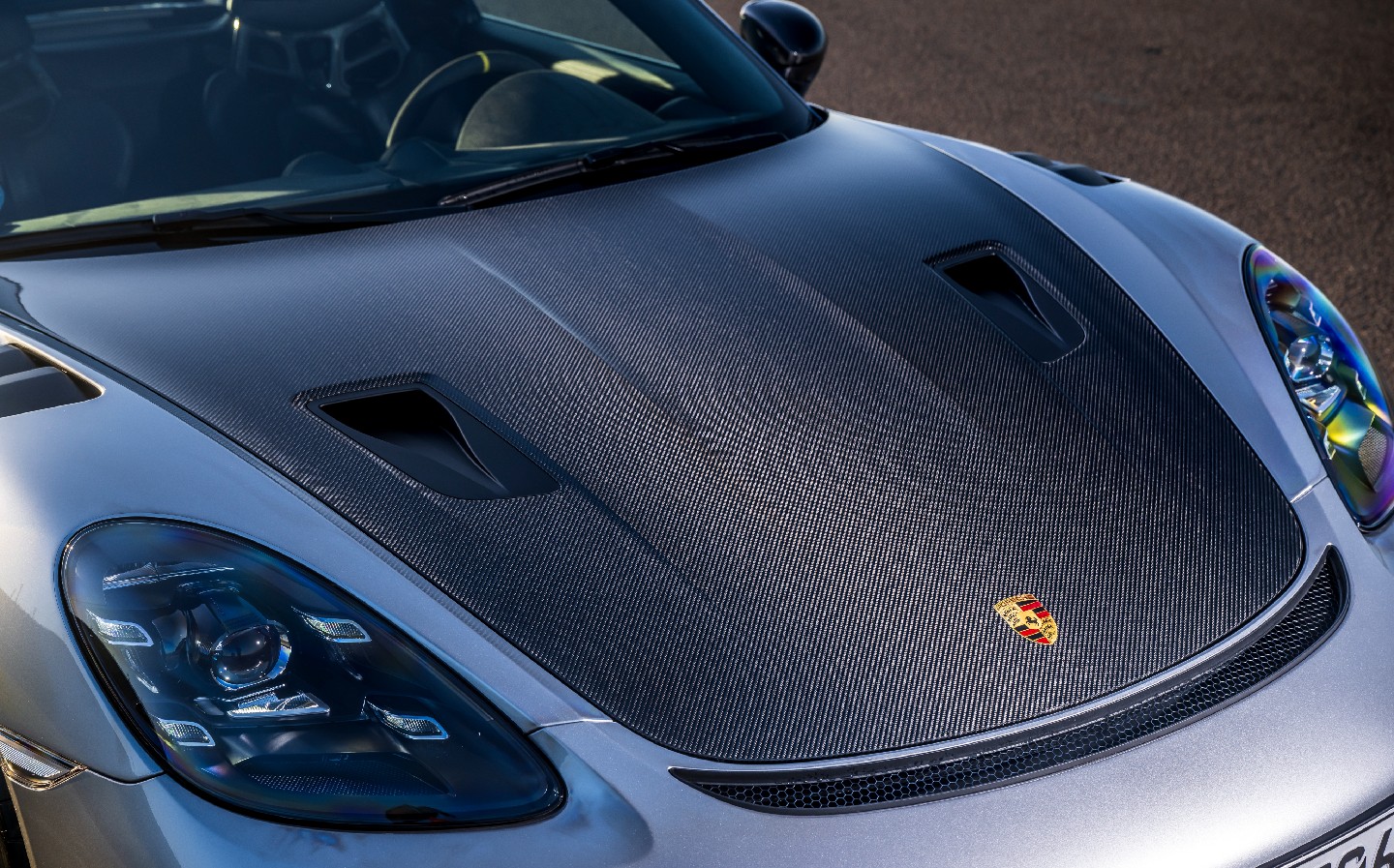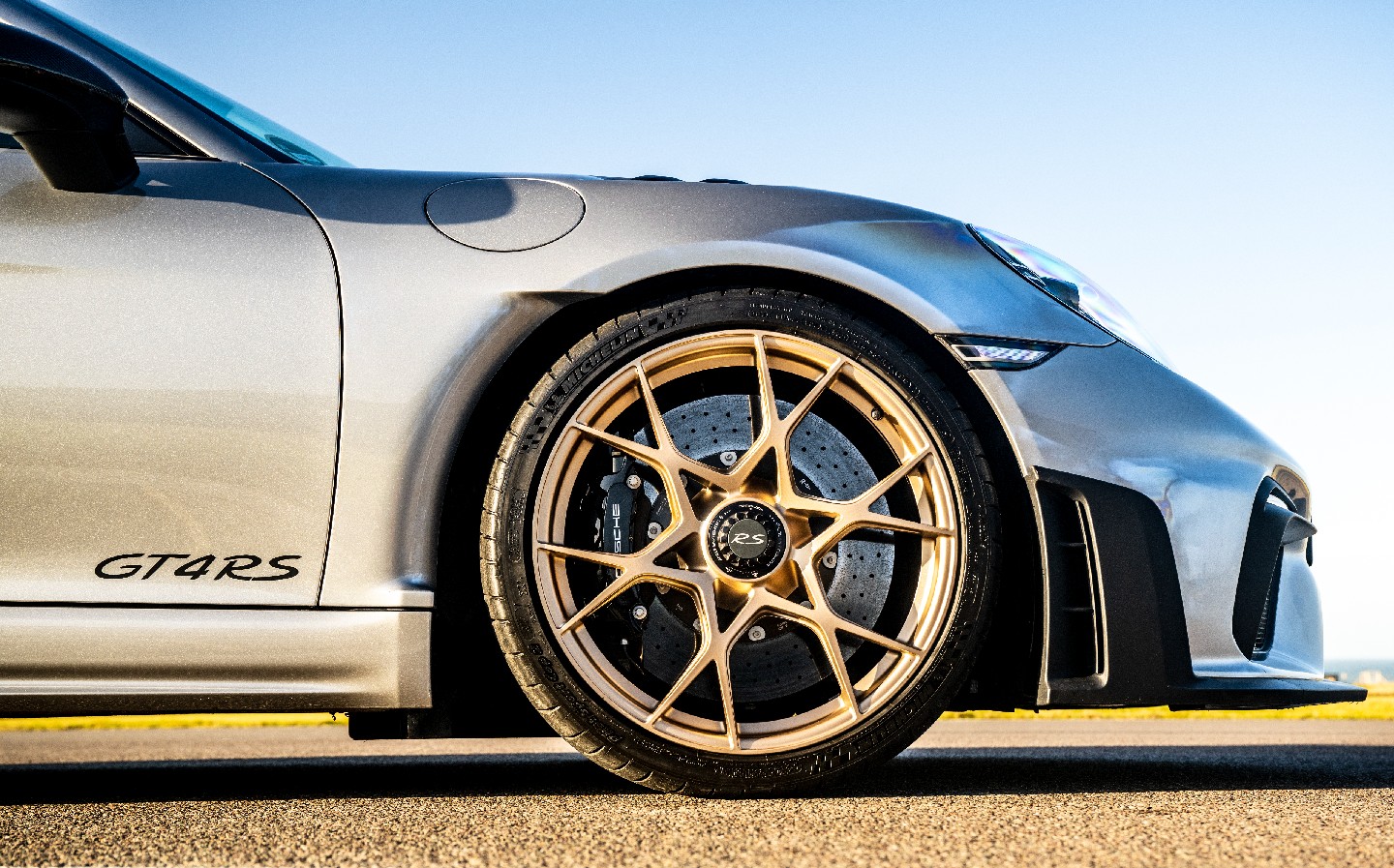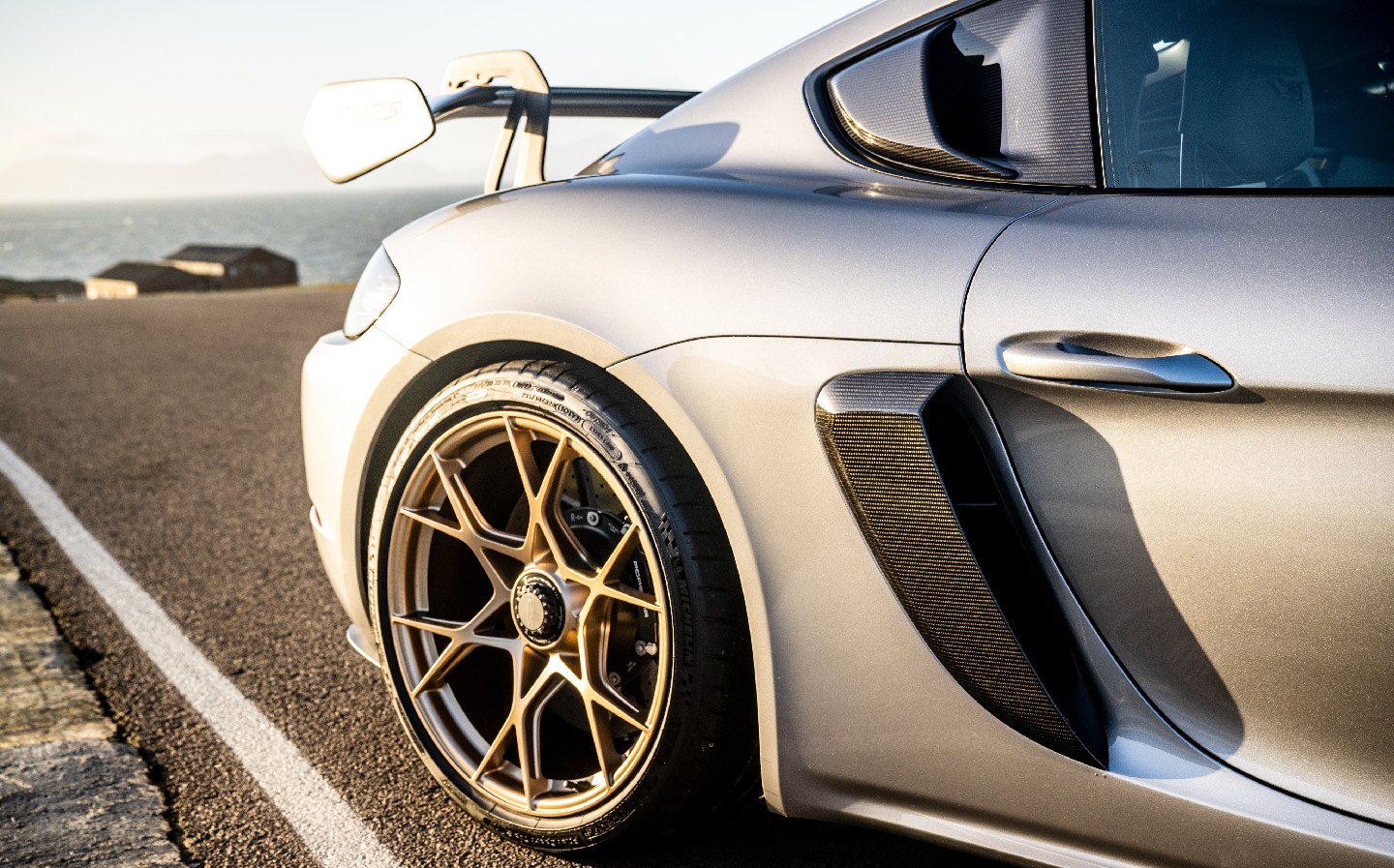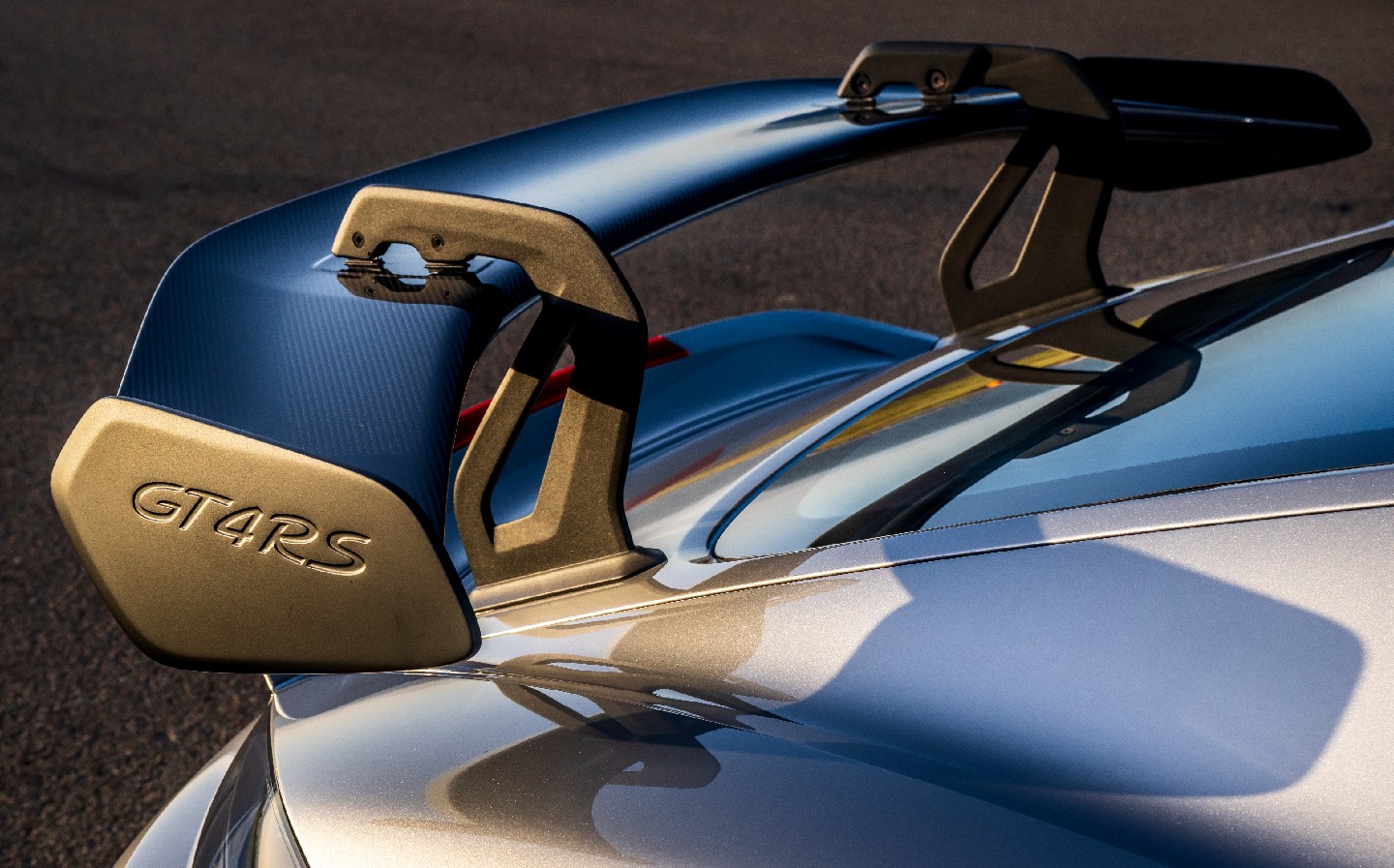Porsche 718 Cayman GT4 RS 2022 review: A phenomenal track weapon but give me something else to drive home
About as fun as it gets ... just bring a trailer
Porsche could never be accused of neglecting true sports car enthusiasts, providing track-focused versions of both the 911 and the 718, which comes in both Cayman (hard top) and Boxster (cabriolet) forms.
But while the 911 GT3 is a machine purpose-designed to wring every last millisecond off lap times, Porsche claims the new 718 Cayman GT4 RS has one thing in mind: fun.
The fact that it’s 23.6 seconds faster around the Nürburgring than the “standard” GT4 is a bonus, of course, and a point that Porsche casually drops into the first paragraph of its media notes.
When you consider that the current GT4 is also 12 seconds quicker than the one it replaces around the Nordschleife, the new GT4 RS would appear to be a much more serious track weapon than the Porsche marketing folk would like us to believe.
The pricing is also serious: the 718 GT4 RS starts at £108,370, which is a lot more than other cars enthusiasts might consider fun, such as a Caterham Seven or Mazda MX-5. Is the Porsche worth it, though?
Design

Aerodynamic downforce is where much of those improved lap times come from, and you might have noticed that fairly substantial rear wing dangling from the rear struts on the boot lid. The swan neck design is derived from the 911 RSR racing car, and was first transferred to the new 911 GT3 but now finds its way onto the 718. By having the wing suspended from the top, the airflow over the bottom part of the wing is able to flow undisturbed.
That wing can be set to one of three angles, and the front diffuser adjusted four ways. Put them in their most extreme settings and you get 25% more downforce than the regular GT4 can provide.

Also marking out the design of the GT4 RS are Naca ducts on the bonnet, which channel airflow towards the brakes, to help cool them without creating drag, and vents on the top of the front wheel arches to reduce excess pressure from the wheels’ rotation and thereby reduce front lift at speed.
There are also air intakes where the rear quarterlights would be, allowing the mid-mounted flat-six engine to breathe, along with more Naca ducts under the car and a rear diffuser to help cool the engine, suck the car to the ground and clean up the airflow behind the car.
All of which is very clever, but the best thing about it is that the 718 GT4 RS just looks sensational. A beautiful bit of design combining form with function in the most hardcore way.
Interior
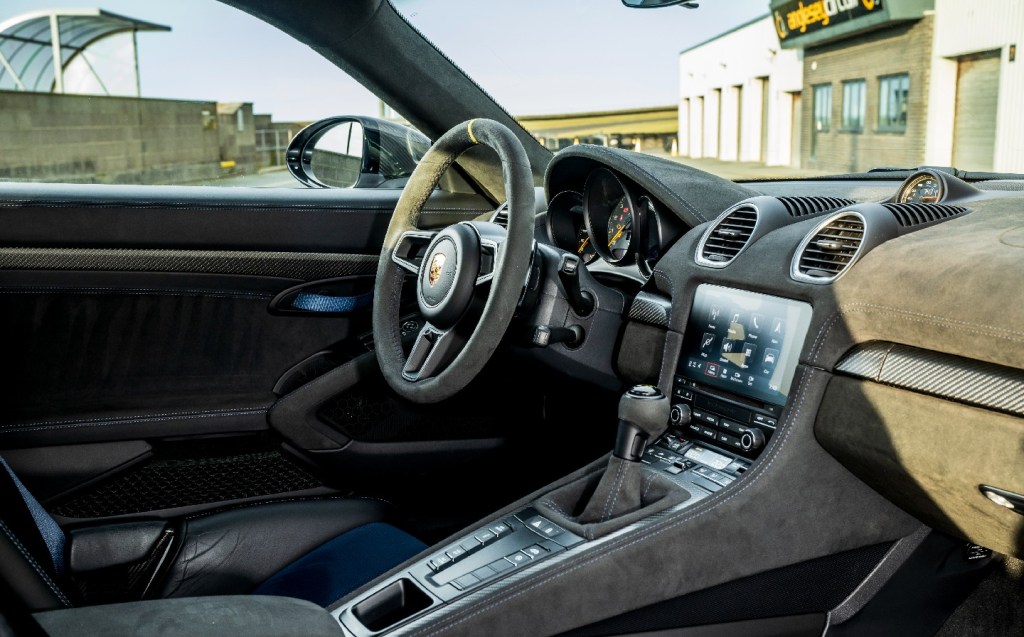
Of course, this is a more focused driving environment than other 718 models, and even more so than the regular GT4, though it’s not as completely devoid of creature comforts.
In fact, the RS’s carbon fibre bucket seats, fitted as standard, are brilliantly supportive but also surprisingly accommodating even for tall drivers (no problems with headroom here at all), though feel quite upright for road use. If you want the ability to recline and add lumbar support they can be uprated to 18-way electrically-adjustable versions, though we didn’t get a chance to try those out.
There’s also air conditioning and touchscreen infotainment with connected sat nav, voice control, and Apple CarPlay fitted as standard. Not having Android Auto would be a deal-breaker for me in most cars, though in the 718 GT4 RS I might be able to overlook it.
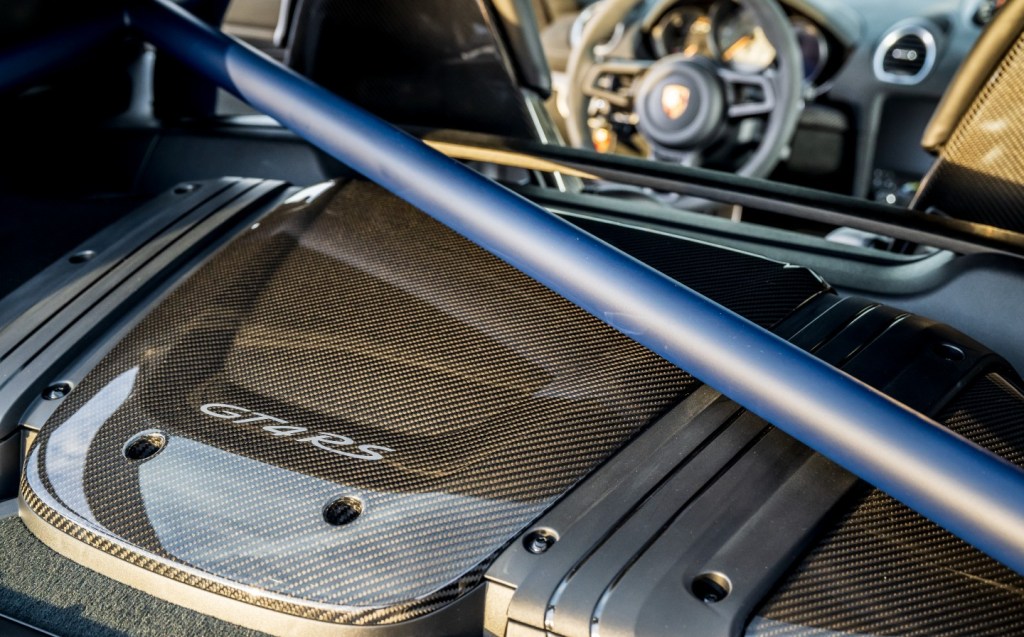
Perhaps, to save 6kg, I’d opt for the car without infotainment altogether, particularly if adding the Clubsport Package with steel roll cage, six-point harness and fire extinguisher, or even more focused Weissach Package, with its lighter titanium roll cage and Race-Tex (Alcantara-like) dashboard covering.
A nice bit of tech to add would be the Chrono Package, which works with the Track Precision smartphone app to record lap times via GPS, allowing you to see where you can improve your lap times. You could even ask a pro driver to set a lap time and then see how far your own performance deviates sector by sector.
But in terms of a cockpit that envelops the driver and makes them feel at one with the car, the GT4 RS is hard to beat.
Engine, performance, ride and handling
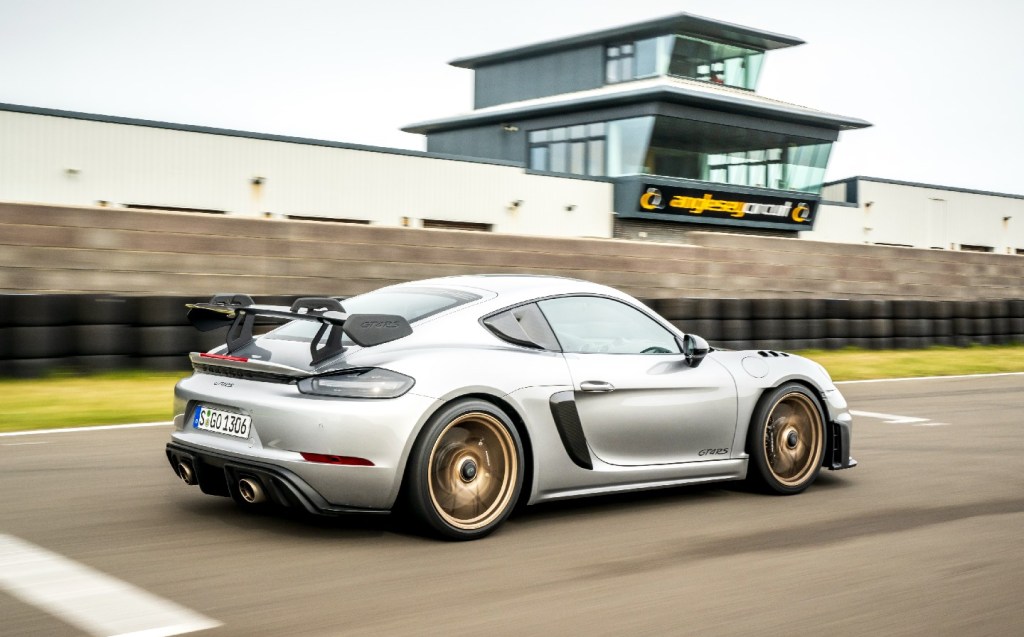
With all of its track-focused changes versus the GT4, you won’t be at all surprised to read that the GT4 RS is grippier, tauter and just plain faster, but it’s more than that. The RS is like a different car altogether.
The first thing you notice – can’t avoid, actually – is the noise. It’s ferocious, and not just a few decibels above that of the GT4, but more akin to standing next to the runway at Heathrow. The removal the bulkhead, along with the air intake being directly behind your ear, results in true racing car levels of din.
And it gets loud because, once tyres, brakes and engine are up to temp, you find the 9,000rpm redline arrives remarkably quickly, partly because the seven-speed PDK automatic transmission (no manual available for the RS) has a closer ratio than the GT4 and partly because the 4-litre flat-six naturally-aspirated engine shifts the RS as if it were made of polystyrene, rather than steel and carbon fibre (bonnet, diffuser, front wings and rear wing).

Although lighter glass, carpets and headlights all help reduce weight, Porsche managed to shave just 35kg off the GT4’s 1,450kg. The Weissach Package shaves off another 10kg, with extra carbon fibre along with magnesium wheels and a titanium exhaust, but even without it, the powerplant is a beast.
It’s the exact same unit as found in the 911 GT3 Cup, giving the GT4 RS some serious muscle; the 493bhp output is a shade down on the GT3 but only because the exhaust is longer, and well up on the regular GT4’s 414bhp. It’s a bit like giving David Goliath’s right arm.
And it’s an engine that demands to be pushed hard, with maximum power arriving just 600rpm shy of that 9,000rpm red line.
That it’s capable of hitting 196mph and 0-62mph in 3.4 seconds, which is a full second quicker than the 718 GT4, is notable, though it’s not the straight line speed or acceleration that is especially remarkable in the RS; it’s its ability to plant the power on the way out of a corner.
It had been raining heavily on the morning of our test at Anglesey Circuit, Wales, though the sun came out before I got behind the wheel, meaning I got a chance to try both cars in wet, patchy and dry conditions.
That extra traction of the RS actually makes it a far easier thing to drive quickly in the wet, with greater grip into and through the turns, and improved ability to claw its way away from the apex, too, thanks to the same front suspension as found in the previous-generation (991.2) 911 GT3 (it doesn’t get the race-bred double-wishbone set-up of the new 992 GT3).
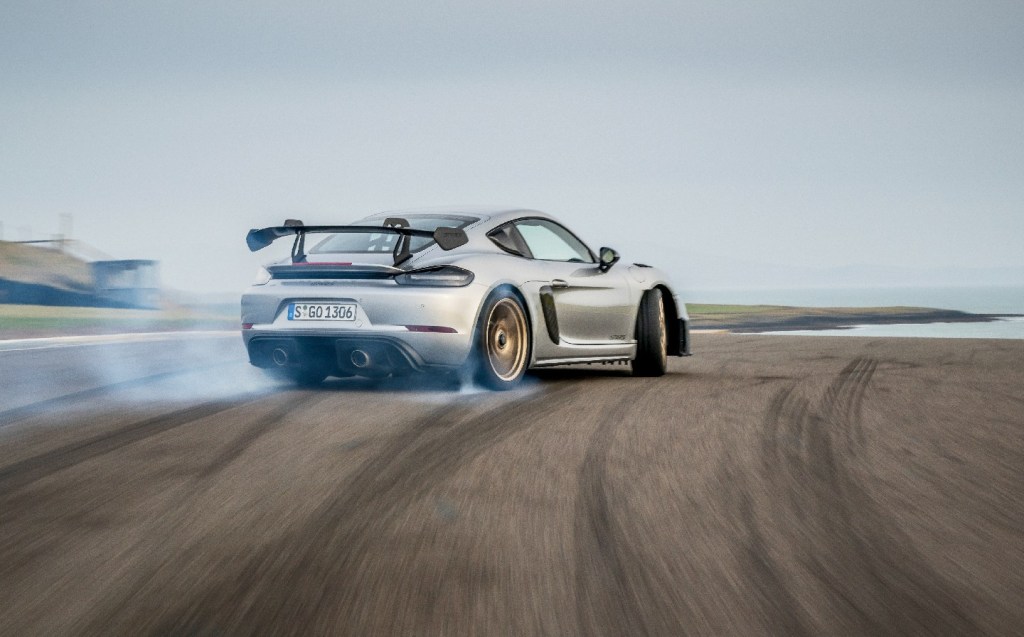
It’s easy to break traction with all the driver aids turned off, of course, and Porsche has made a point of putting buttons for both traction control and traction control plus electronic stability in the centre console. This is a car they know will be owned by people wanting to switch it all off fairly regularly.
And when the back end does start to slide the GT4 and GT4 RS are much more neutrally-balanced and easy to control than I had expected. Driving the regular 718 Cayman and Boxster back-to-back with the 991-generation 911 Carrera at Silverstone’s experience centre a few years back taught me that the rear-engined Porsche was much easier to control once the rear got loose, but the balance of the GT4 and GT4 RS are so sublime that it’s nowhere near as hairy as I had imagined.
In the RS, it’s harder to spin the rear wheels but even easier to catch. There’s no sense that once traction is broken you’ll end up facing the wrong way before you know what’s happened, and instead you get that lovely communication from the car, and slides are fluid and controllable. On the uprated brakes, the GT4 RS also feels balanced and controllable, with minimal body roll but enough pitch to plant the front tyres before a corner, meaning plenty of confidence approaching tight turns at high speed.
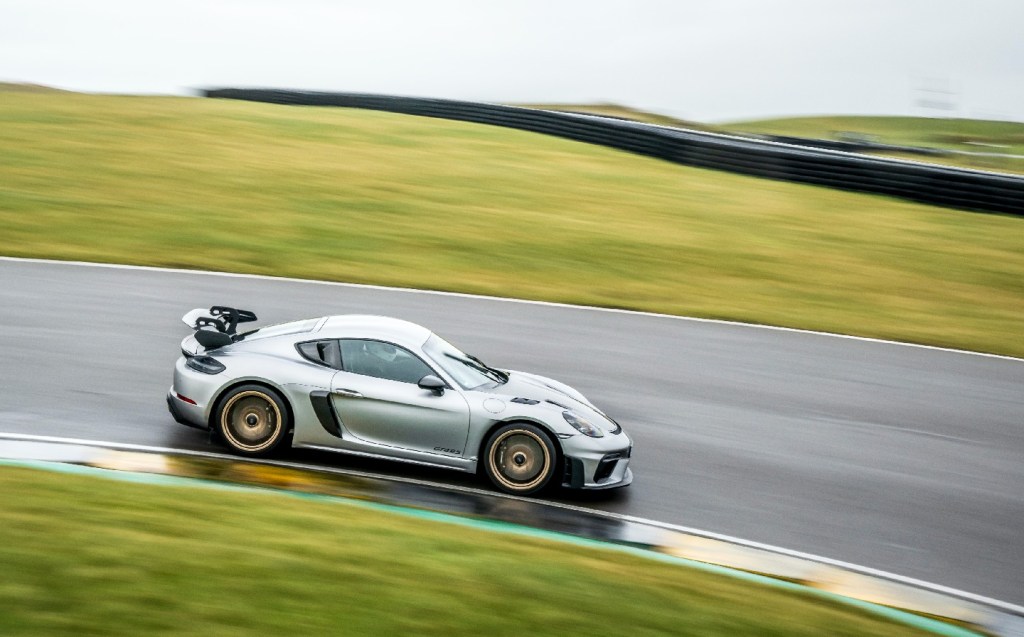
Of course, while the track-focused improvements worked wonders at the circuit, on the roads around Anglesey the GT4 RS proved … a bit much.
The noise isn’t as deafening when you’re not pushing flat out and revving all the way to 9,000rpm — the PDK in auto mode short-shifts its way to seventh as quickly as it can (it’ll cruise in top at 40mph) — but the noise at speed is still significant, which rather ruins John Pienaar’s Drivetime show on Times Radio (send a tenner down to my desk, John).
The worst thing, though, is the harshness of the ride on British B-roads, which falls below acceptable levels for all but the shortest of journeys. I had driven to Anglesey in a Lamborghini Aventador SVJ (story coming soon), and even its ride was less tooth-rattling than that of the 718 GT4 RS.
All of which makes the GT4 RS one of the truly great track-day cars — fun, predictable, dramatic and really fast — but if you’re taking it to a far-flung circuit, you’ll thank me for advising you to take it on a trailer.
On sale date, pricing and rivals

We mentioned the price — £108,370 — and that’s before any of the many, many options available. Our test car retailed at well over £130,000, so it’s very easy to push the cost up in the configurator.
Bear in mind, though, that this is a rare machine and track-focused Porsches are noted for retaining their values, or increasing them. A quick look at Porsche retailers shows that even some GT4s are going for around £108,000 already, so buying one of these new, if you can afford it, wouldn’t be a stupid investment.
There are few direct rivals but let’s have a go. Though a car aimed at the 911, for almost the exact same money as the GT4 RS you could go for the Mercedes-AMG GT Coupé. It has more power (585hp) and comfort, though it’s heavier and the engine is mounted in the front, making it a different sort of machine. The biturbo V8 won’t give the same thrill (or trill) as the high-revving flat-six, either.
You could also consider an Audi R8 V10 Performance RWD, which has the engine in the right place … a naturally-aspirated one with an extra four cylinders and 70hp, at that. But we doubt that’d be quite as quick around a track, as it’s not as focused by any stretch.
More of a track weapon rival would be the outgoing Lotus Exige which is down on power but lighter, and because it’s been discontinued is now part of motoring history. The replacement could be a great bet, though: a brand new Lotus Emira fitted with the supercharged V6 is definitely worth a look. It’s 100hp down on the GT4 RS and so more of a rival to the 718 GTS 4.0, but a track-only Emira GT4 is in development right now.
Verdict: Porsche 718 GT4 RS review

The 718 GT4 RS is what Porsche does best: track-focused sports car capable of netting astonishing lap times in the right hands while also possessing the kind of accessibility and fine balance to not be a handful for amateurs. Any enthusiast could grab this car by the scruff of its neck and learn to wring out every last drop of performance. That’s where the fun factor, which Porsche is keen for us to be aware of, comes in.
However the most fun we’ve had on track recently has been with another Porsche — the new 911 GT3 — and after our time with the GT4 RS that opinion hasn’t changed, but its damn close, shares the same wonderful flat-six engine and is more than £20,000 more affordable. That puts the £108,370 asking price in perspective, and as mentioned above you’re unlikely to lose money on the GT4 RS.
If I were driving to or from the track, the 911 GT3 is the car I’d want to be in, as the 718 GT4 RS is too noisy and has too harsh a ride to make long-distance journeys anything less than tiresome. In fact, the regular GT4 is probably the sweet spot as an all-rounder. But go to a circuit and the GT4 RS is unbeatable.
Tweet to @wdron Follow @wdronRelated articles
- If you enjoyed this 2022 Porsche 718 GT4 RS review, also take a look at our review of the Porsche 911 (992) GT3.
- And don’t miss our track review of the pure-electric Porsche Taycan GTS.
- Click here to see our guide to some of the best sports cars available in 2022
Latest articles
- Aston Martin Valkyrie AMR-LMH hypercar hits track ahead of 2025 Le Mans challenge

- Porsche has begun testing the electric Cayenne

- Cupra Leon 272 eHybrid 2024 review: Bigger battery, better tech … but is it a Cupra?

- Porsche 911 GTS 2024 review: Hybrid heresy or more Stuttgart genius?

- Extended test: 2023 Vauxhall Astra Sports Tourer GS PHEV




